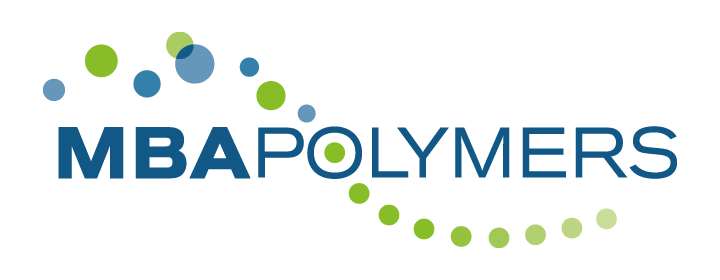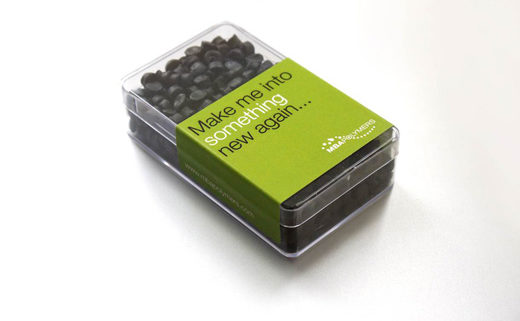Reaching market UTOPIA for recycled plastics
Creating and sustaining market utopia by delinking recycled plastics from virgin polymer markets is achievable, MBA’s Sales Director Gary Claypole told a packed audience of recycling professionals at this year’s Plastics Recycling Europe Conference. Indeed, this is the next step for recycled plastics and will help to grow the European plastics recycling industry.
UTOPIA, Gary explained, stands for: ‘unlimited trading opportunities for plastics in AD 2000s’. This is MBA’s vision for the future. We believe we can reach it through delivering high quality, sustainable products in a way that exceeds customers’ expectations and sees us continuously innovating and channelling our knowledge into expanding the range of polymers we recycle.
So how can this transition be achieved?
Currently, virgin plastics are made in the ‘take, make, waste’ linear model. However, as resource scarcity intensifies and petro-chemical prices rise, a new, more sustainable model is urgently needed.
MBA believes the key to catalysing the move will entail mobilising public opinion, seeking supportive domestic and EU policies, and helping customer to meet their commercial and sustainability requirements. Being able to offer a secure supply to ensure availability will be vital. MBA also sees that quality is crucial in the journey to replace virgin plastics with recycled plastics, and adheres rigorously to strict quality standards, including ISO 9001, REACH and RoHS.
Innovation with customers is also a vital way forward. Customers demand high standards, Gary highlighted – they want their recycled plastics to offer the same performance characteristics as virgin polymers. MBA’s products are used in diverse, technology-led industries, including automotive, construction, rigid packaging, industrial and electronics and electrical appliances. Our customer Mainetti produces 1m recycled plastic coat hangers per day. Meanwhile, Nespresso’s futuristic ‘U’ coffee machine uses 40% recycled plastics, and JLR’s new Range Rover uses 34.2kg of recycled plastics per car.
Importantly, MBA’s recycled plastics deliver significant sustainability benefits: 100% of our feedstock is sourced from post-consumer waste that would otherwise be landfilled and we operate a low energy manufacturing process. The energy saved – just 20% of the energy is needed to produce recycled plastic vs virgin polymers – ultimately helps our customers to comply with key sustainability regulations, attain green certifications, and reduce their carbon footprint.
Gary explained that MBA is a global leader in producing sustainable plastics from end-of-life goods. We operate some of the world’s most high tech processing facilities and use proprietary, multi-stage technology to process some 135,000 tonnes of feedstock per year. We know that as demand for recycled plastics increases, there will be even more pressure to deliver a stable, consistent supply, and this is integral to achieving a long-term switch to recycled plastics.
MBA offers a secure supply, which is increasing through diverse sources. For example, we have a long-term contract with EMR for automotive shredder residue. The company processes more than 2m cars a year in the UK alone, and with increased investment this year, EMR is now operating the UK’s biggest recycling facility at its premises in Oldbury.
In May 2013, we also launched Austria’s largest e-waste shredder with our JV partner, Müller-Guttenbrunn, further reinforcing our commitment to recapture plastics from post-consumer e-waste. Increasingly, we’re also accepting municipal waste, and our technology enables us to make the most of all these complex waste streams.
“We’re separating complex plastics, one polymer at a time,” Gary Claypole told the audience, and referring to Dustin Hoffman’s famous scene in ‘The Graduate’, he finished with “I have two words for you: sustainable plastics!”
MBA Polymers’ sustainability credentials in numbers:
- We divert 110,000 waste from landfill annually, that’s 62 Big Bens!
- Using 100 tonnes of an MBA Polymer product saves 400 tonnes of CO2 vs virgin plastic and 200 tonnes of waste from being sent to landfill – enough to fill 14 double-decker buses
- We save 80% of energy and 1-3 tonnes of CO2 per tonne of virgin plastic replaced
- Our proprietary processes use 15% of the energy required to produce plastic from petro-chemicals, saving 4.8 tonnes CO2 for every tonne of virgin plastic replaced.
For more information on MBA Polymers, please visit our website. The 2014 Plastics Recycling Europe Conference united professionals from across the industry in Milan this October to discuss challenges and opportunities for European recycling. For more information, please click here.

